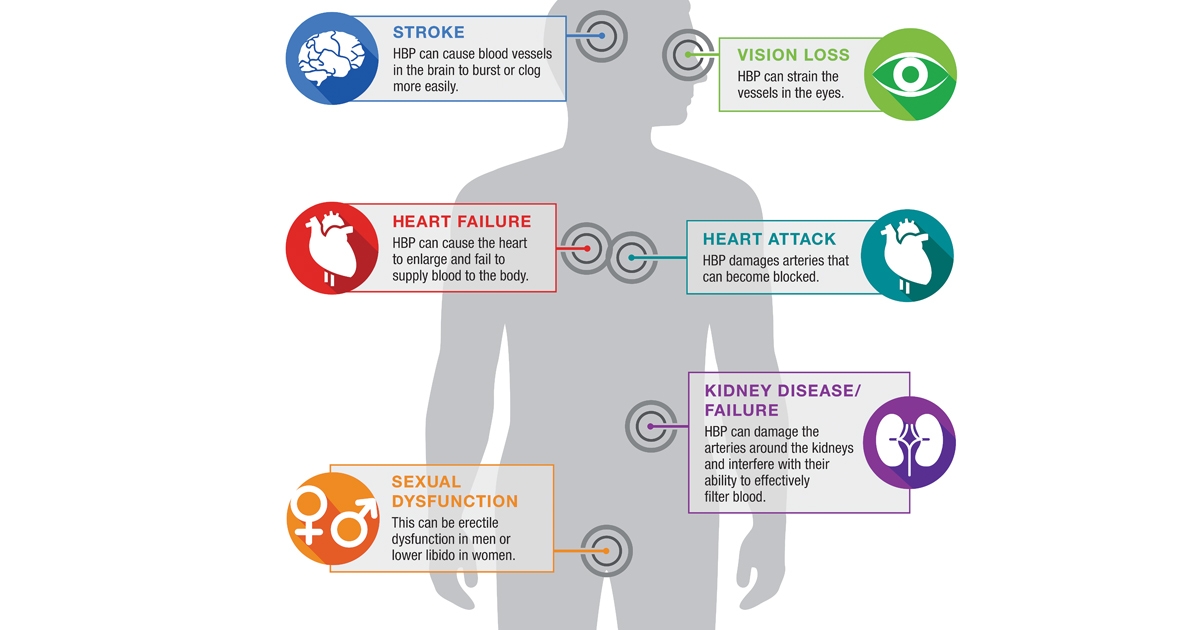The only way to know if you have high blood pressure, also called hypertension, is to have your blood pressure tested. Understanding the results is key to controlling high blood pressure, according to the American Heart Association/American Stroke Association (AHA/ASA).
Your blood pressure is recorded as two numbers.
Systolic blood pressure (the first number) indicates how much pressure your blood is exerting against your artery walls when the heart beats.
Diastolic blood pressure (the second number) indicates how much pressure your blood is exerting against your artery walls while the heart is resting between beats.
American Heart Association recognizes five blood-pressure ranges.
Normal
Blood pressure numbers of less than 120/80 mm Hg are considered within the normal range. If your results fall into this category, stick with heart-healthy habits like following a balanced diet and getting regular exercise.
Elevated
Elevated blood pressure is when readings consistently range from 120-129 systolic and less than 80 mm Hg diastolic. People with elevated blood pressure are likely to develop high blood pressure unless steps are taken to control the condition.
Hypertension Stage 1
Hypertension Stage 1 is when blood pressure consist ently ranges from 130-139 systolic or 80-89 mm Hg diastolic. At this stage of high blood pressure, doctors are likely to prescribe lifestyle changes and may consider adding blood pressure medication based on your risk of atherosclerotic cardiovascular disease (ASCVD), such as heart attack or stroke.
Hypertension Stage 2
Hypertension Stage 2 is when blood pressure consistently ranges at 140/90 mm Hg or higher. At this stage of high blood pressure, doctors are likely to prescribe a combination of blood pressure medications and lifestyle changes.
Hypertensive Crisis
This stage of high blood pressure requires medical attention. If your blood pressure readings suddenly exceed 180/120 mm Hg, wait five minutes and then test your blood pressure again. If your readings are still unusually high, contact your doctor immediately.
If your blood pressure is higher than 180/120 mm Hg and you are experiencing signs of possible organ damage such as chest pain, shortness of breath, back pain, numbness/weakness, change in vision or difficulty speaking, do not wait to see if your pressure comes down. Call 911.
Hypertension usually does not present with signs and symptoms, except in the case of hypertensive crisis. In most cases, the damage inflicted by high blood pressure takes place over time. Left undetected or uncontrolled, high blood pressure can lead to several critical situations.
- Heart Attack: High blood pressure damages arteries that can become blocked and prevent blood flow to the heart muscle.
- Stroke: High blood pressure can cause blood vessels in the brain to clog more easily or even burst.
- Heart failure: The increased workload from high blood pressure can cause the heart to enlarge and fail to supply blood to the body.
- Kidney Disease or Failure: High blood pressure can damage the arteries around the kidneys and interfere with their ability to filter blood effectively.
- Vision loss: High blood pressure can strain or damage blood vessels in the eyes.
- Sexual Dysfunction: High blood pressure can lead to erectile dysfunction in men or lower libido in women.
- Angina: Over time, high blood pressure can lead to heart disease or microvascular disease (MVD). Angina, or chest pain, is a common symptom.
- Peripheral Artery Disease (PAD): Atherosclerosis caused by high blood pressure can cause a narrowing of arteries in the legs, arms, stomach and head, causing pain or fatigue.
Your best protection is knowledge, management, and prevention. Have your blood pressure checked, and learn what factors could make you more likely to develop high blood pressure—and be at greater risk for serious medical problems. Then, take steps to reduce that risk by making heart-healthy lifestyle changes, taking any medication as prescribed, and working in partnership with your doctor.
Managing blood pressure is a lifelong commitment. If you have high blood pressure, it’s vital to listen to your doctor. Remember, you’re a part of your own healthcare team. Educate yourself about high blood pressure, and learn how to monitor your blood pressure at home. Armed with this information, you can commit to living heart healthy.
Adopting a heart-healthy lifestyle will have positive results.
- Reducing high blood pressure.
- Preventing or delaying the development of high blood pressure.
- Enhancing the effectiveness of blood pressure medications.
- Lowering your risk of heart attack, stroke, heart failure, kidney damage, vision loss and sexual dysfunction.
While heart disease is still the No. 1 killer in the United States and around the world, death rates have decreased significantly. Earlier and better treatment of high blood pressure has played a key role in that decrease. You can have a huge impact on the health outcomes of your family and friends by spreading the message of prevention and control of hypertension too. MSN











